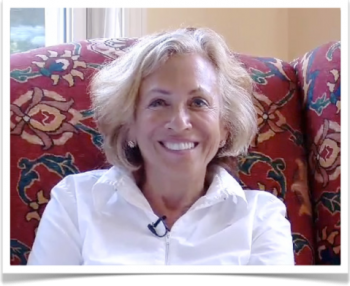Pioneering Authentic Education
Dr. Nina Meyerhof
President of Children of the Earth, USA
Education comes from the word educare…which means to draw forth or lead out. Education is a calling…a vocation of passion for individuals who care about our next generation and our collective future. Educators today are so often bogged down by the subjects they are teaching that they often forget they are builders of this most important future. The young people are not only inheritors of our past but are also our initiators into the next phase of cultural evolution. They are the architects for the coming phases that include social, cultural and global development. They have the potential to no longer imitate what has come before them but rather imagining the scaffolding for structures that lead us into a better future.
If we are to change our behaviors then our education must change. Our systems need to reflect this deepest understanding of what it means to be human and to live at a time when the true essence of a global society is truly the interconnectedness of all intentions and deeds. There has been an on-going evolution for the need for moral education and the rising potential of the empowered voice of individuals. To take this deeper is to know that the next relevant educational model is to educate for tapping into higher consciousness and translating the experience into societal actions for external global harmony.
The Millennial Generation, the next generation, is able to foster the shift in humanity’s consciousness. We are learning from science that we are interdependent and interconnected as one life. The human genome project has proven that we are genetically 99.9 percent alike, with only one tenth of one percent making us different. Only when we concentrate on what makes us the same, instead of what makes us different, can we deal with the challenges ahead.
As students move inward to discover their true Authentic Self so they are able to become the motivators that build a better future. The model of Reflect–Connect–Act is a training process to empower and enrich students to realize their inner potential as well as building educational institutions that better serve the generations coming. Downloading information and structured learning is no longer that relevant in this technological era. It is time to use the information era as a means for individuals for fostering their personal growth and encouraging the understanding that we live mentally, physically and emotionally connected and to build a global arena that considers all peoples. It is imperative that we spend our time and resources on young people, supporting leadership and educational experiences that promote respectful communities, common ethics, sustainable practices, peace, and economic opportunities.
Altering our educational philosophy for “Authentic Learning” becomes the source of teaching rather than the present day practice of schooling for information. Educators are the forerunners of building culture. As an educator, I define several modes or models for thinking about this potential. These modes or models are terms used to help categorize activities for use within the classroom setting and included in the model for Authentic Learning. An important conceptual model is “inquiry learning” and/or “reflective learning” that emphasizes the truth and acceptance that we each have an inherent wisdom. This wisdom needs to be explored and supported. Teaching needs to focus on asking the right questions and offering the resources. Thus the teacher becomes a facilitator rather than the instructor. As a result of the reflective process for “altruistic learning” occurs implying to serve another’s needs is equivalent to serving one’s own needs. Another aspect of Authentic Learning is “experiential learning” that allows the learner to experience learning on a deeper more intense manner using experiences as a source for reflection and acquiring information. Examining the world and reaching personal and social conclusions leads to the needs for each individual to know and understand their relationship within the whole. Included in this thinking mode is ”systems learning” so that we educate for the understanding that all parts belong to a whole. Holistic thinking is a process that allows us to incorporate the self while learning that the whole is greater than all of its parts within a system. Another model for thinking and including in building true authentic learning style is “transpersonal learning”. This includes personal and interpersonal relationships as a means for learning abut the self in relationship to the others for the building a future culture. All these models working together educate the individual learner to invent ideas while serving the greater good.
Examples of Authentic learning educate for processes of REFLECTION, how to CONNECT in relationships to others and then to translate these skills into behavioral ACTIONS that serve the self and the greater society for positive change.
The Reflection phase is a process of selecting guided visualizations, meditations, or prayers appropriate for use in the schools. Young people begin by hearing their own inner guidance and learn to sense their personal goodness. This in relationship to self-esteem is a more guaranteed manner to experience one’s own self value. The process can be done on a daily basis.
The Connection phase is learning the skills necessary for building positive friendships. This section gives tools that are helpful for learning non-violence techniques of communicating as well as tools for working within a group.
The Action phase is for students to learn that they are truly relevant and can make a difference in the world. They learn how to develop plans of action that will make a difference in a larger context whether it be their school, community or the world at large.
Authentic Learning prepares students to take personal and collaborative leadership in this emerging changing global culture with all its difficulties and positive potentials.





